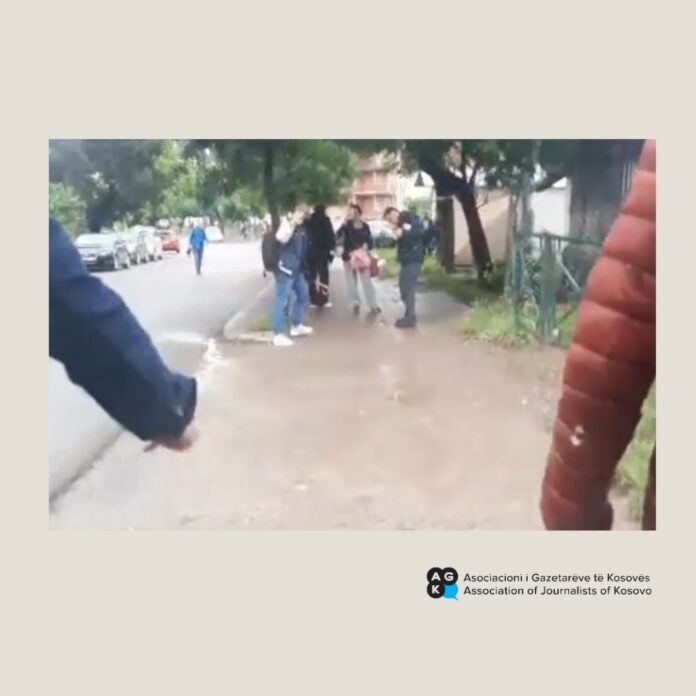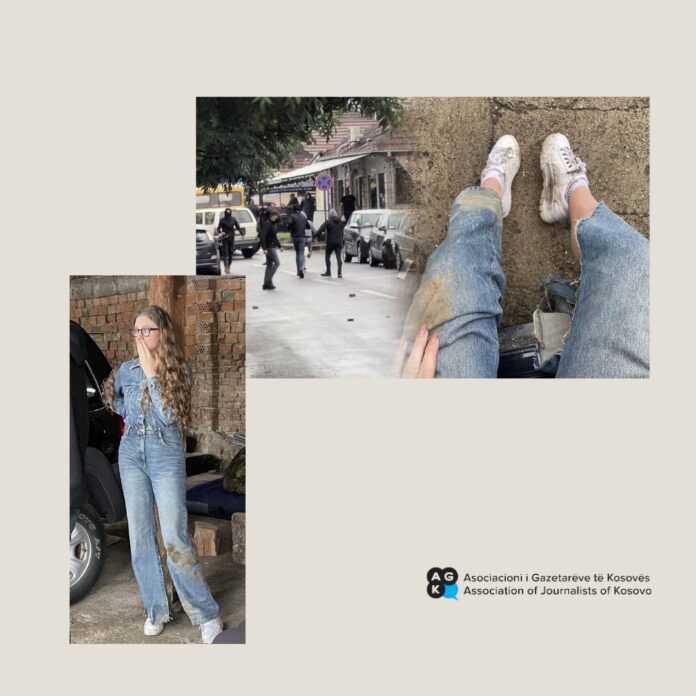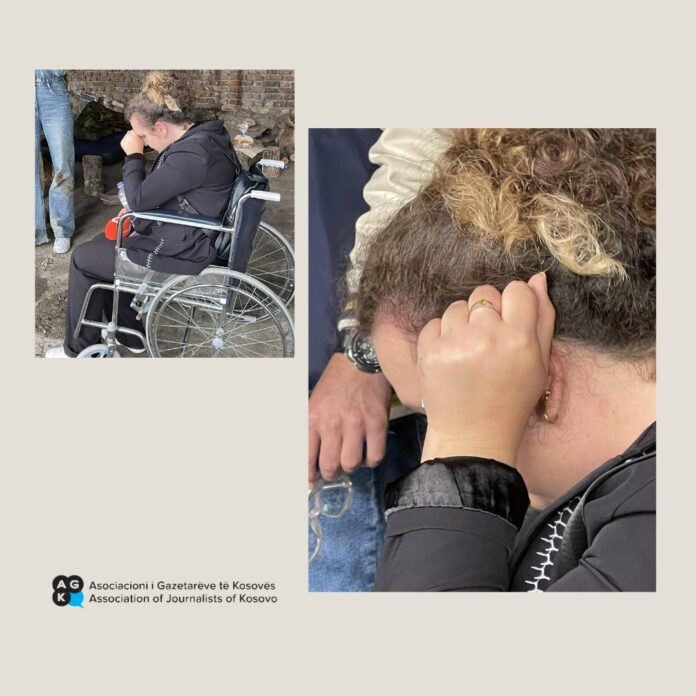Sixty two journalist organisations and civil society groups sign joint letter to EU Council
Independent Journalists’ Association of Serbia (IJAS) today joins a civil society and journalists organisations in voicing our concerns about proposals to weaken protections for journalists against spyware surveillance envisioned in the draft European Media Freedom Act (EMFA).
IJAS joins these groups in jointly calling on the Council of the European Union to reconsider its current position on the EMFA, as stated in a recent compromise text. Instead, the Council must take steps to meaningfully protect journalists and their fundamental rights.
Read the full letter below, which was sent on 19 June 2023
To: Deputy Permanent Representatives (COREPER I)
CC: Attachés for Culture and Audiovisual
19 June 2023
Dear Deputy Permanent Representatives,
We, the undersigned 60 civil society and journalists organisations, are writing to voice our concerns on the worrying developments related to the draft Regulation on the European Media Freedom Act (EMFA), in particular the provisions of Article 4 (“Rights of media service providers”). The latest compromise text of 24 May poses serious risks to European Union core democratic principles and fundamental rights, notably press freedoms, freedom of expression and the protection of journalists.
In particular, the latest compromise text: (a) maintains and aggravates the Commission’s proposal which carves out a “national security” exception from the general prohibition to deploy spyware against journalists; (b) increases the list of crimes that permit surveillance against journalists and journalistic sources; and (c) eliminates legal safeguards that protects journalists against the deployment of spyware by Member States.
In order to ensure that the Regulation protects journalists and their fundamental rights, the Council must instead:
(a) Eliminate the exception for “national security”
The current compromise text, instead of protecting journalists and their sources, will legalise the use of spyware against journalists. Specifically, the inclusion of a new paragraph 4. stating that “[t]his Article is without prejudice to the Member States’ responsibility for safeguarding national security” turns in effect the protections originally afforded by Article 4 into empty shells. Through this new provision, the Council is not only weakening safeguards against the deployment of spyware but also strongly incentivises their use based solely on Member States’ discretion.
Hungarian journalist Szabolcs Panyi adequately describes the real threat this provision poses to journalism:
“Technical forensic analysis of my phone showed that the Pegasus spyware had been running on my device for seven months. My surveillance impeded my right to protect my sources of information. I am an investigative journalist who relies heavily on information from whistleblowers. In increasingly repressive political environments, like in Hungary, where media is under government control and pressure, whistleblowers and leaks are the only way left for investigative journalists to uncover the truth. This is exactly why, under the pretext of vague and bogus national security reasoning, surveillance is used against journalists in Hungary. It has an enormous chilling effect, and could make our work impossible. EU leadership in Brussels must realize that any EU citizen, whether a journalist or a source of a journalist, can become subject of illegitimate surveillance if certain member states always get away with using ‘national security’ as a free pass. This makes the EMFA even more essential in protecting the rights of journalists and freedom of the press.”
Including the “national security” exception without fundamental rights safeguards neglects the important case law of the Court of Justice of the European Union (CJEU). The Court has been clear that the mere purpose of safeguarding national security cannot render EU law inapplicable and does not exempt Member States from their obligations to comply with the rule of law.
(b) Restrict the list of crimes that allows repressive measures against journalists and journalistic sources and prohibit the deployment of spyware
The draft Council position deletes the exhaustive list of crimes set by the Commission in Article 2, paragraph 17 to replace it with the list established in the European Arrest Warrant Framework Decision conditioned by a maximum detention sentence of at least three years and with all offences punished by maximum minimum threshold of five-year imprisonment under national law. This has the effect to massively expand the list of crimes justifying the deployment of spyware against journalists and journalistic sources, including less severe offences such as “arson” or “piracy of products”. This is deeply problematic from a fundamental rights perspective.
To abide by the principle of proportionality, it is vitally important to include a proper threshold that excludes parts of national criminal codes which do not justify intrusive measures under Article 4(2) point (b). According to the CJEU case law only serious crime is capable of justifying a serious interference with the fundamental rights of the individual.2 When it comes to journalists and media workers the threshold must be higher due to the crucial role they play as public watchdogs in our democracies. As assessed by the European Data Protection Supervisor (EDPS) in its preliminary remarks, the level of interference of modern spyware with the right to privacy is so severe that it “in fact deprives” the individual of this right. When the individual is a journalist or a source, it is all the more clear that even the purpose of protecting national security cannot establish a proper balance with the interference at stake. In a nutshell, the broad scope of the catalogue of crimes in point (c) of Article 4(2) opens the door to unacceptable and disproportionate surveillance against journalists and journalistic sources. If not substantially redrafted, the EMFA would legalise the silencing of critical voices, reinforcing chilling effects on civic spaces.
(c) Include strong legal safeguards to protect and respect free and independent journalistic work
The current proposal of the Council does not include any measures capable of safeguarding fundamental rights as required by the Treaty on European Union and the Charter of Fundamental Rights. The EMFA therefore should follow the fundamental standards built in the jurisprudence of the CJEU and the European Court of Human Rights (ECtHR). For example, it must include an effective, binding and meaningful prior authorisation by an independent judicial authority. Furthermore, repressive measures under Article 4 (a) and (b) must be necessary, proportionate, assessed on a case-by-case basis and strictly limited to the most serious crimes.
The testimony of Catalan journalist Enric Borràs Abelló, President of the Group of Journalists Ramon Barnils and Deputy Director of ARA newspaper shows how crucial legal safeguards are in the context of state surveillance:
“The list of personalities spied on with Pegasus and Candiru in the so-called Catalangate has at the moment 65 names confirmed by NGO Citizen Lab. Three of them are journalists. The cyberespionage against the Catalan independence movement broke out more than a year ago and since then the Spanish National Intelligence Center (CNI) has only recognized the espionage of 18 people linked to the movement. None of them are journalists. The CNI had judicial authorisation to do so in the framework of the terrorism investigation of the [internet-based] organisation called Democratic Tsunami, which called for several demonstrations in Catalonia. The investigation of the other 47 cases perpetrated without judicial authorisation remains without a response from national authorities. So far, there isn’t any kind of collaboration from Spanish intelligence”
In light of aforementioned points, the undersigned civil society and journalists’ organisations are urging the Council to reconsider its current position and to build a solid position against the surveillance of journalists. The Pegasus scandal in Hungary, the Predator case in Greece or the “Catalan Gate” simply are not tolerable in democratic societies. It is the role of the Council to make sure to include the highest legal safeguards to protect journalism. Therefore, we sincerely hope that, in your responsible capacities, you take the urgent and substantial steps to ensure that the concerns outlined in this letter are addressed appropriately.
We remain at your disposal should you want to further discuss how the Council can ensure that its general approach to the EMFA enhances fundamental rights, democracy and the rule of law – the foundations on which the European Union is based.
Sincerely,
- Access Info Europe
- Access Now
- ActiveWatch, Romania
- ApTI – Asociatia pentru Tehnologie si Internet, Romania
- Article 19
- Association of Professional Journalists, Albania
- Belarusian Assotiation of Journalists (BAJ), Belarus
- CFDT-Journalistes, France
- Citizen D / Državljan D, Slovenia
- Civil Liberties Union for Europe (Liberties)
- Civil Rights Defenders, Sweden
- Croatian Journalists Association
- Cultural Broadcasting Archive, Austria
- Culture and Mass-Media Federation FAIR-Media Sind and Romanian Trade Union ofJournalists, Romania
- Danish Union of Journalists, Denmark
- Digitalcourage, Germany
- Digital Citizenship (DCO)
- Dutch Association of Journalists (NVJ), The Netherlands
- Electronic Frontier Norway (EFN), Norway
- Estonian Association of Journalists, Estonia
- Eurocadres
- European Centre for Press and Media Freedom (ECPMF)
- European Digital Rights (EDRi)
- European Federation of Journalists (EFJ)
- European Partnership for Democracy (EPD)
- Federazione Nazionale Stampa, Italy
- Finnish Union of Journalists, Finland
- Flemish Association of Journalists, Belgium
- Free Press Unlimited, the Netherlands
- Gazeta Wyborcza Foundation, Poland
- Global Forum for Media Development (GFMD)
- Gong, Croatia
- Group of Journalists Ramon Barnils, Spain
- Helsinki Foundation for Human Rights, Poland
- Human Rights Monitoring Institute, Lithuania
- Hungarian Press Union, Hungary
- IT-Pol, Denmark
- Independent Journalists’ Association of Serbia (NUNS), Serbia
- Independent Journalists Association of Vojvodina, Serbia
- International Press Institute
- Internews
- Journalists’ Union of Turkey (TGS), Turkey
- La Quadrature du Net, France
- Latvian Journalist Union, Latvia
- Ligue des droits humains (LDH), Belgium
- Lithuanian Union of Journalists (LZS), Lithuania
- Media Diversity Institute
- Osservatorio Balcani Caucaso Transeuropa (OBCT)
- Ossigeno.info, Italy
- Peace Institute, Slovenia
- Portuguese Union of Journalists (SINJOR), Portugal
- Reporters without Borders (RSF)
- Serbian Union of Journalists (SINOS), Serbia
- Society of Journalists, Warsaw, Poland
- South East Europe Media Organisation (SEEMO)
- Statewatch, UK
- Swedish Union of Journalists, Sweden
- Syndicat national des journalistes CGT (SNJ-CGT), France
- TUC Nezavisnost, Serbia
- Trade Union of Croatian Journalists, Croatia
- Trade Union of Media of Montenegro (TUMM), Montenegro
- Wikimedia Europe










